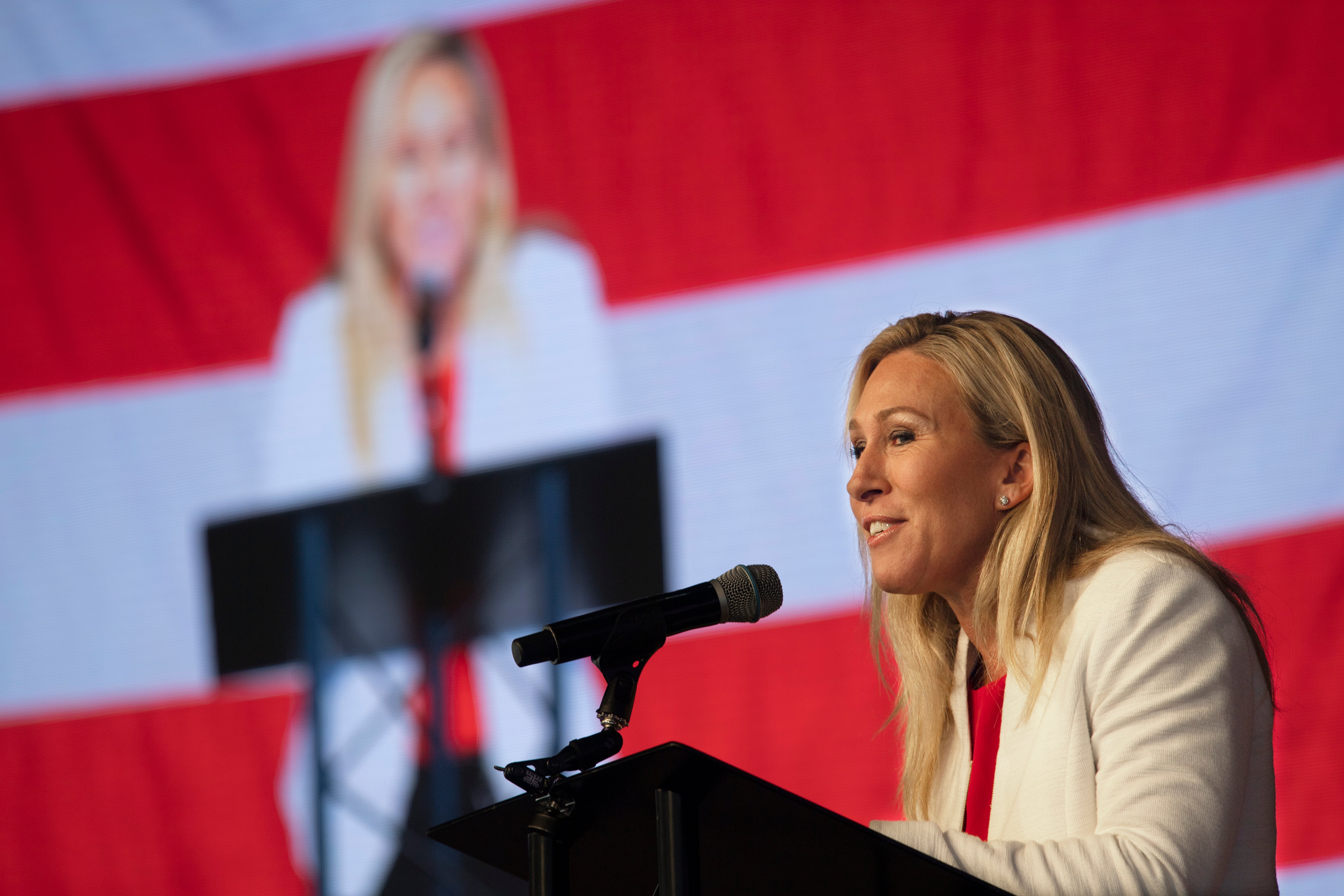Greene sues to stop challenge to her reelection eligibility
U.S. Rep. Marjorie Taylor Greene has filed a lawsuit challenging a state law that a group of voters is using to challenge her eligibility to run for reelection

Your support helps us to tell the story
From reproductive rights to climate change to Big Tech, The Independent is on the ground when the story is developing. Whether it's investigating the financials of Elon Musk's pro-Trump PAC or producing our latest documentary, 'The A Word', which shines a light on the American women fighting for reproductive rights, we know how important it is to parse out the facts from the messaging.
At such a critical moment in US history, we need reporters on the ground. Your donation allows us to keep sending journalists to speak to both sides of the story.
The Independent is trusted by Americans across the entire political spectrum. And unlike many other quality news outlets, we choose not to lock Americans out of our reporting and analysis with paywalls. We believe quality journalism should be available to everyone, paid for by those who can afford it.
Your support makes all the difference.U.S. Rep. Marjorie Taylor Greene filed a lawsuit Friday challenging a state law that a group of voters is using to challenge her eligibility to run for reelection.
The challenge filed last month with the Georgia secretary of state's office alleges that Greene, a Republican, helped facilitate the Jan. 6, 2021, riot that disrupted Congress from certifying Joe Biden’s presidential election victory. That violates a provision of the 14th Amendment and makes her ineligible to run for reelection, the challenge says.
Greene’s lawsuit asks a judge to declare that the law that the voters are using to challenge her eligibility is itself unconstitutional and to prohibit state officials from enforcing it.
A rarely cited part of the 14th Amendment says no one can serve in Congress “who, having previously taken an oath, as a member of Congress . . . to support the Constitution of the United States, shall have engaged in insurrection or rebellion against the same.” Ratified shortly after the Civil War, it was meant in part to keep representatives who had fought for the Confederacy from returning to Congress.
Georgia law says any voter who is eligible to vote for a candidate may challenge that candidate’s qualifications by filing a written complaint within two weeks after the deadline for qualifying. The secretary of state must then notify the candidate of the challenge and request a hearing before an administrative law judge. After holding a hearing, the administrative law judge presents findings to the secretary of state, who then must determine whether the candidate is qualified.
Free Speech for People, a national election and campaign finance reform group, filed the challenge March 24 on behalf of the group of voters. A hearing before an administrative law judge has been set for April 13.
Greene “vigorously denies that she 'aided and engaged in insurrection to obstruct the peaceful transfer of presidential power,'” the lawsuit says.
The law only requires the people challenging a candidate's eligibility to file a written statement of why they believe the candidate isn't qualified, and that automatically triggers the secretary of state's request for a hearing before an administrative law judge, the lawsuit says. The fact that a government investigation can be triggered based only on the challenger's belief violates Greene's First Amendment right to run for political office, the lawsuit says.
The challenge statute also puts the burden on Greene to prove by a preponderance of the evidence that she didn't engage in the alleged behavior, and that “burden shifting” violates the due process clause of the 14th Amendment, the lawsuit says.
The lawsuit also alleges that the challenge statute “directly usurps” Congress' constitutional ability to judge whether a member is qualified.
Finally, a law passed in 1872 removed the disqualifications put in place by the part of the 14th Amendment that the challengers are trying to use against Greene, lawsuit says
Voters supported by Free Speech for People filed a similar challenge against U.S. Rep. Madison Cawthorn in North Carolina that has been blocked by a federal judge. The State Board of Elections has until April 11 to decide whether to appeal that ruling.